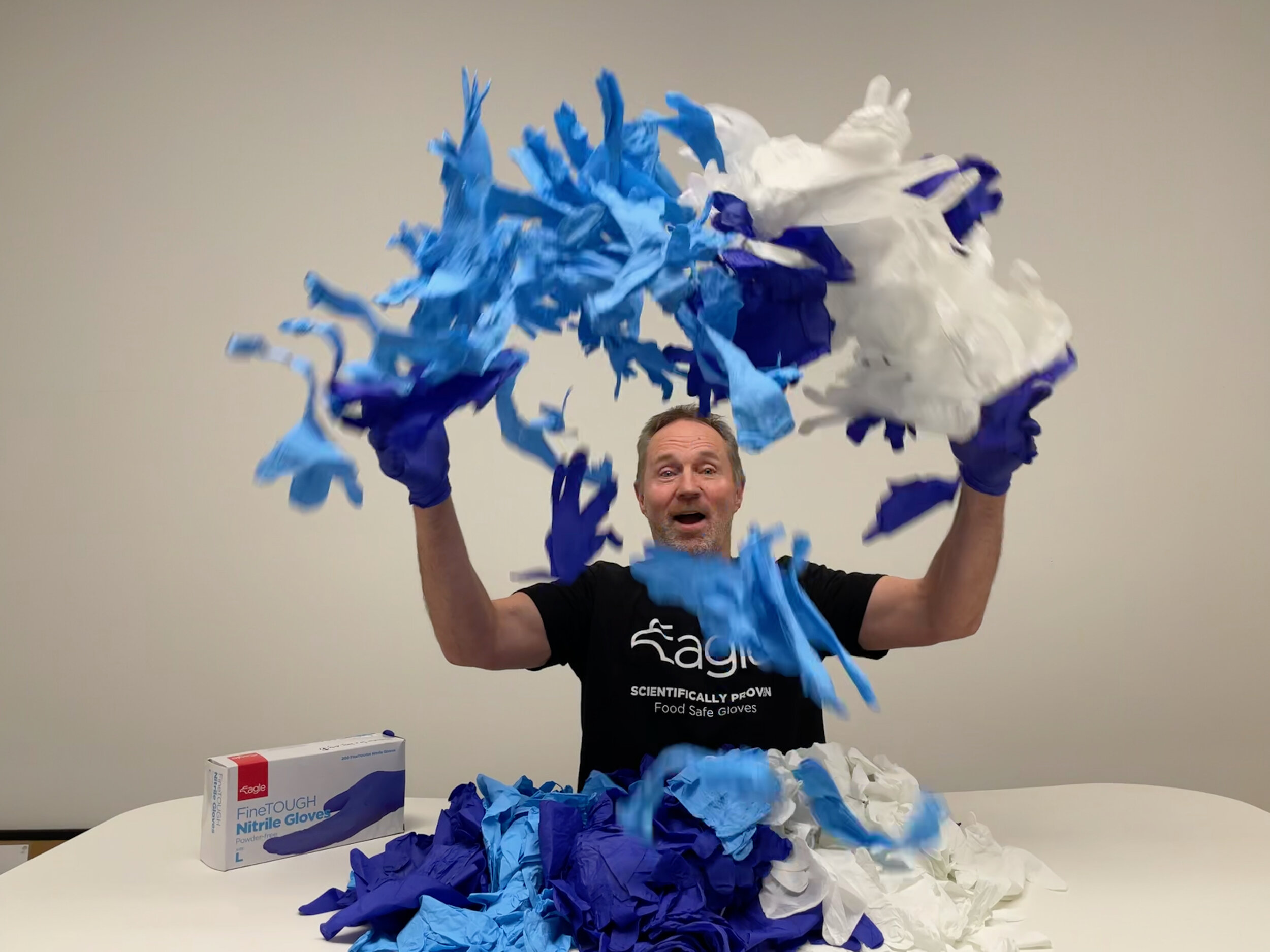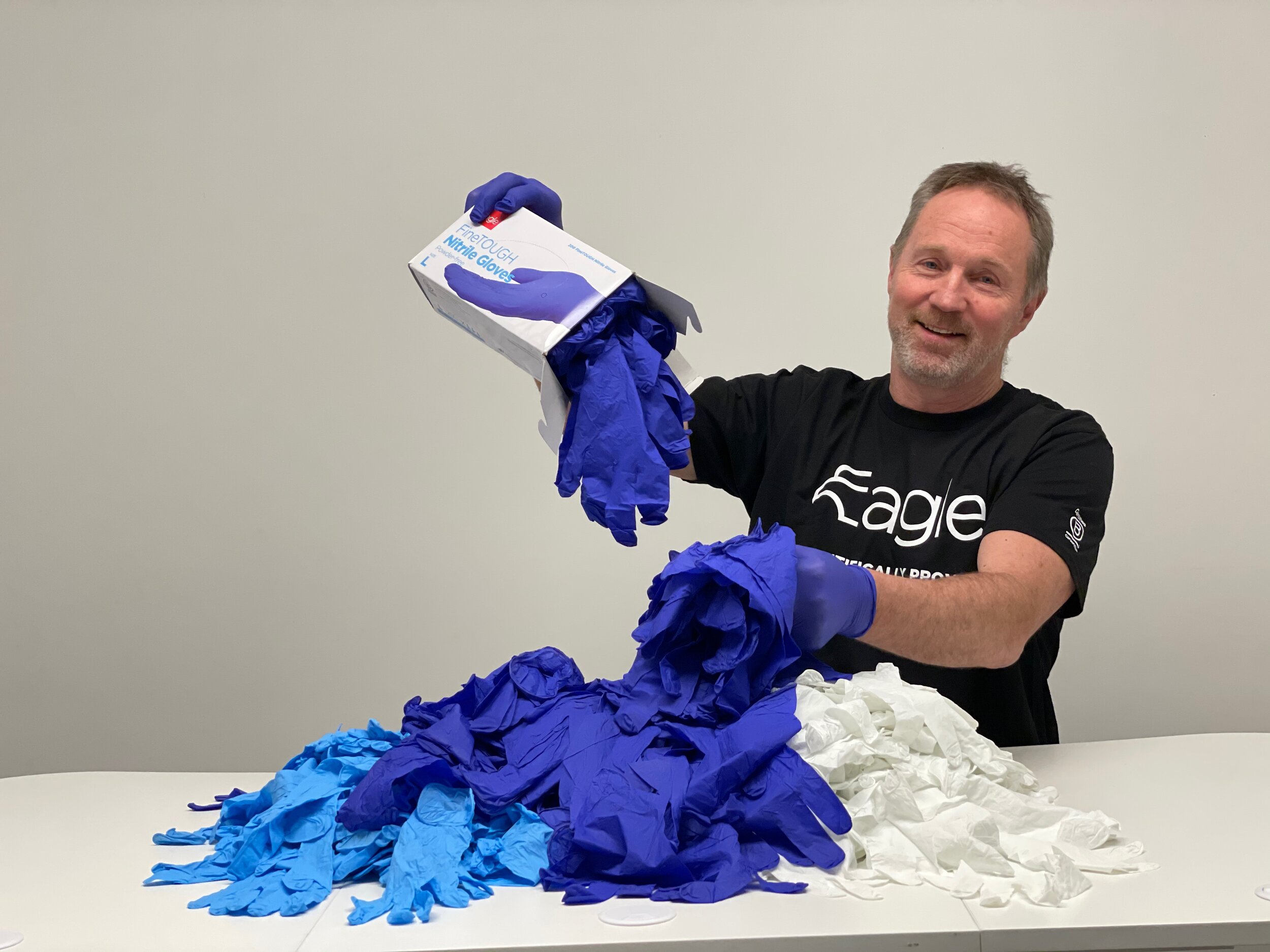NZ paying soaring glove prices for frontline covid workers
Lake South Tahoe, California - The world is facing a severe shortage of covid protective gloves and New Zealand is paying rising glove prices to help its front healthcare workers, a global leading Kiwi glove expert says.
Californian-based New Zealander Steve Ardagh, who owns glove company Eagle Protect, says glove prices are rising every month but it will soon be supply rather than cost which will be the problem.
Gloves provide a barrier of protection against pathogens for the wearer. If they are not intact or are faulty, they are a cross infection risk, he says.
“New Zealand is a very, very small glove user by world standards and the country is basically living in a Truman Show-like bubble compared to the rest of the world. But that does not make it immune from the commercial realities of soaring prices and limited supply.
“Prices from factories have increased by over 300 percent since March 2020 and are continuing to increase between 15 and 30 percent every month.”
A Ministry of Health report says New Zealand imported $37 million in personal protective equipment (PPE) to deal with the covid last year that was never used because it did not meet safety standards.
Ardagh says New Zealand seemed to be underprepared for pandemic requirements of PPE.
“Had they had supply in place, this would have been better quality and purchased at pre pandemic levels. However, New Zealand had to scramble to purchase below quality standard products at inflated prices at the beginning of 2020 in competition to the rest of the world.”
Ardagh says there are many ‘bad actors’ now involved in glove trading and brokering with everything from used gloves being repackaged and sold as medical to container loads of empty boxes being shipped to unwary buyers, and it is likely that NZ was caught up in this, causing the purchase of defective products and millions of dollars wasted.
“The risk is that New Zealand buyers will be unaware of the risks of sourcing and potentially make poor choices of product and / or vendor.
“The main factor at play here is that many users of disposable gloves see them as a pure commodity and all the same, rather than the specialist protective item they are. So, they do not put the necessary due diligence into the purchase of the product or the choice of supplier.
“When covid hit last year, Kiwi companies and well-meaning individuals with no PPE experience were sourcing products from dealers and third parties focused on profit. PPE may seem like an easy industry to source product, but clearly this is proven to not be the case.
“There are many stories of reject and poor quality gloves being offered as medical grade gloves and shipped around the world.
“Manufacturers are under pressure to meet the increasing demands for single use gloves and since there is little oversight into the quality of the raw materials used to manufacture gloves, it is extremely easy to change the ingredients and add cheaper products, making the glove inferior or reject quality and a potential health risk.
“Worker exploitation in glove manufacturing has also been reported consistently over the years, and the ongoing pressure to increase manufacturing has increased labour violations significantly.
“Better planning of PPE sourcing and inventory levels, with less of a focus on immediate cost, will help NZ navigate through the next year to protect front line workers.
“New Zealand has been seen internationally as an iconic response example to the pandemic - part due to geographic isolation and part due to fast action and a cooperative population.
“The cracks that have appeared since are related to outdated procurement policies based on request for proposal thinking.
“These policies potentially encourage low quality products and an all care no responsibility attitude from the PPE suppliers. There is no reward or incentive to hold stocks in New Zealand under that system,” Ardagh says.
Eagle Protect has operations in Christchurch and California.
For further information contact Make Lemonade editor-in-chief Kip Brook on 0275 03018
Photo: Steve Ardagh















Lisa was born in Auckland at the start of the 1970s, living in a small campsite community on the North Shore called Browns Bay. She spent a significant part of her life with her grandparents, often hanging out at the beaches. Lisa has many happy memories from those days at Browns Bay beach, where fish were plentiful on the point and the ocean was rich in seaweed. She played in the water for hours, going home totally “sun-kissed.” “An adorable time to grow up,” Lisa tells me.
Lisa enjoyed many sports; she was a keen tennis player and netballer, playing in the top teams for her age right up until the family moved to Wellington. Lisa was fifteen years old, which unfortunately marked the end of her sporting career. Local teams were well established in Wellington, and her attention was drawn elsewhere.